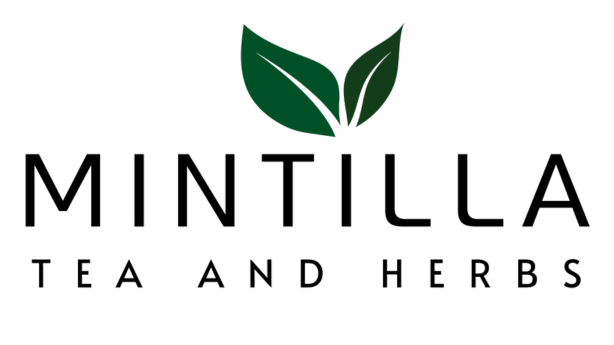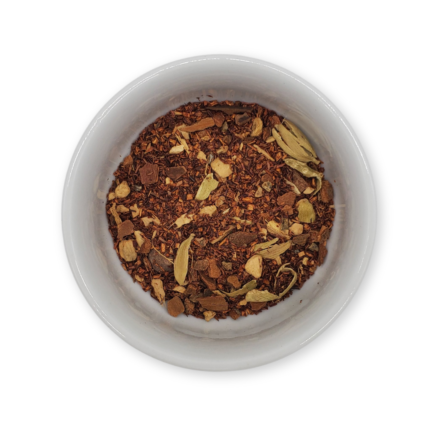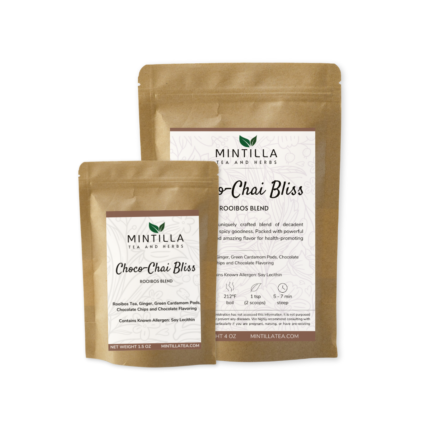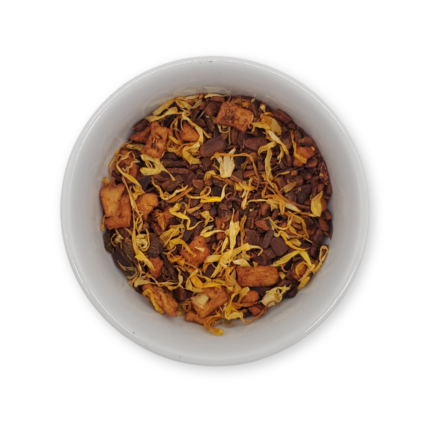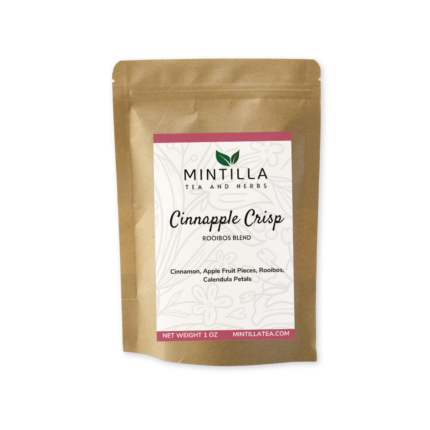Rooibos Tea: The Unfamiliar Super Drink
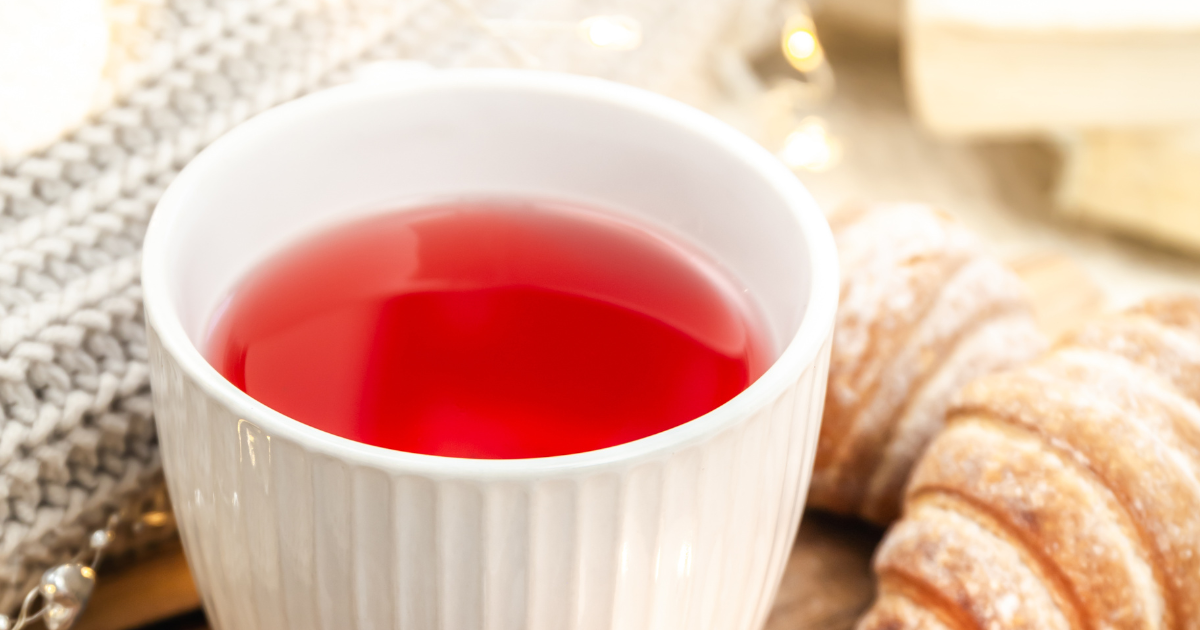
Rooibos tea is a red-colored herbal tea that has a sweet, nutty brew native to the mountains of South Africa. Unlike traditional black or green tea, Rooibos tea is made from the leaves of the Aspalathus linearis plant; when steeped in hot water, produces a vibrant red color.
The highly flavored tea is making waves in the world of health due to its numerous health benefits, unique taste, and lack of caffeine. In this blog post, we’ll explore some of the key benefits of Rooibos tea and what rooibos tea is good for.
Rich in Antioxidants
Antioxidants are essential for fighting harmful free radicals that damage cells and contribute to aging and disease. Rooibos tea is loaded with antioxidants such as aspalathin and quercetin, which can help protect your cells from oxidative stress and reduce inflammation.
Helps With Digestion
One of the most pronounced benefits of rooibos tea is that it helps aid digestion. The tea is rich in flavonoids, and therefore it promotes the growth of good bacteria. These bacteria aid in digestion, help eliminate toxins, and prevent constipation.
Promotes Heart Health
Rooibos tea contains aspalathin, a flavonoid that is believed to lower blood pressure and protect against heart diseases. In addition to aspalathin, the tea also contains quercetin, another potent antioxidant that could contribute to protecting blood vessels, reducing inflammation, and reducing bad cholesterol levels.
Boosts Immunity
Rooibos tea is rich in minerals such as magnesium and zinc, which help to support the immune system. Also, the tea contains several antioxidants such as aspalathin and nothofagin, which could promote cell regeneration and provide protection against free radical damage.
Help Manage Diabetes
Rooibos tea may help regulate blood sugar levels and improve insulin resistance, which are key factors in managing diabetes. This is due to the aspalathin content in Rooibos tea, which has been shown to help balance blood sugar levels.
Promotes Better Sleep
Some people have difficulty sleeping well and often turn to sleeping pills. Rooibos tea acts as a natural sleep aid without harmful side effects. Rooibos tea contains a compound called luteolin, which has been shown to have a calming effect on the body. Drinking Rooibos tea may help reduce stress levels, improve sleep quality, and promote relaxation.
Good for Skin
Rooibos tea has significant benefits for the skin due to its high concentration of powerful antioxidants. The tea acts as a natural sunblock, protects the skin against wrinkles, and promotes skin rejuvenation.
Caffeine-Free
Overall, Rooibos tea offers many health benefits and is a delicious and caffeine-free alternative to traditional tea. From helping with digestion, promoting heart health, boosting immunity, promoting better sleep, and taking care of the skin, this herbal tea is a true super drink.
If you’re looking to incorporate more health-boosting drinks into your diet, rooibos tea is one to consider. You can purchase Rooibos tea at our shop and enjoy its delicious taste while taking advantage of all its health benefits, making it easy to add to your routine.
References:
- Muller CJF, Malherbe CJ, Chirwa EMN, et al. Aspalathin improves glucose and lipid metabolism in 3T3-L1 adipocytes exposed to palmitate. Mol Nutr Food Res. 2013; 57: 1666–1676.
- Joubert E, Winterton P, Britz TJ. Gelderblom WCA. Antioxidant and pro-oxidant activities of aqueous extracts and crude polyphenolic fractions of rooibos (Aspalathus linearis). J Agric Food Chem. 2005; 53: 10260–10267.
- Lane N, Mogami H, Kin GB, et al. Effects of aspalathin-rich green rooibos extract on prevention of type 2 diabetes in high-fat diet−fed C5BL/6J mice. J Agric Food Chem. 2014; 62: 4588–4598.
- Hwang HJ, Chung TW, Kim SC, et al. Inhibitory effects of green tea polyphenol (-)-epigallocatechin gallate on the foam cell formation of THP-1 macrophages. J Agric Food Chem. 2007; 55: 3354–3359.
- Marnewick JL, Rautenbach F, Venter I, et al. Effects of rooibos (Aspalathus linearis) on oxidative stress and biochemical parameters in adults at risk for cardiovascular disease. J Ethnopharmacol. 2011; 133: 46–52.
